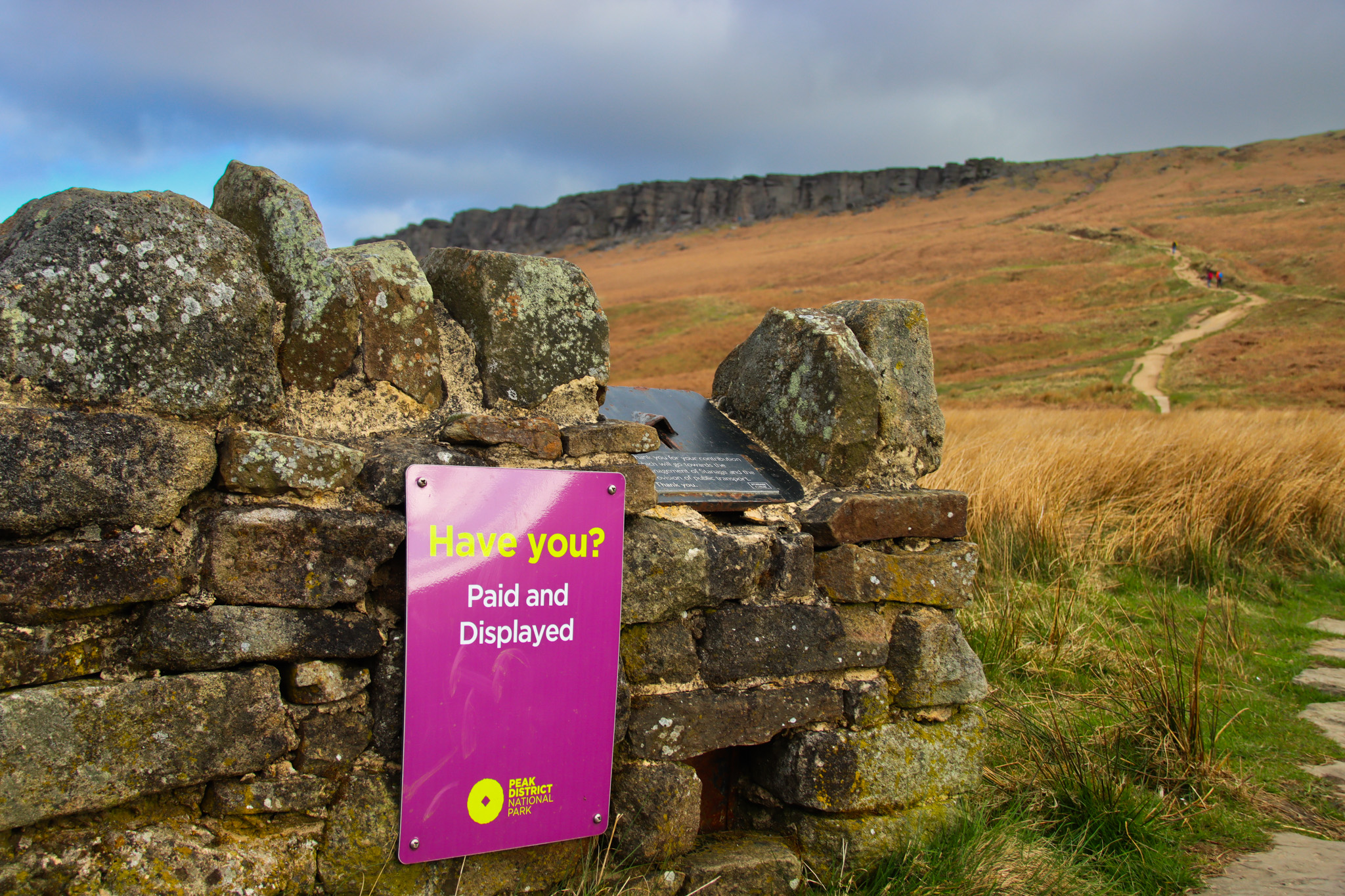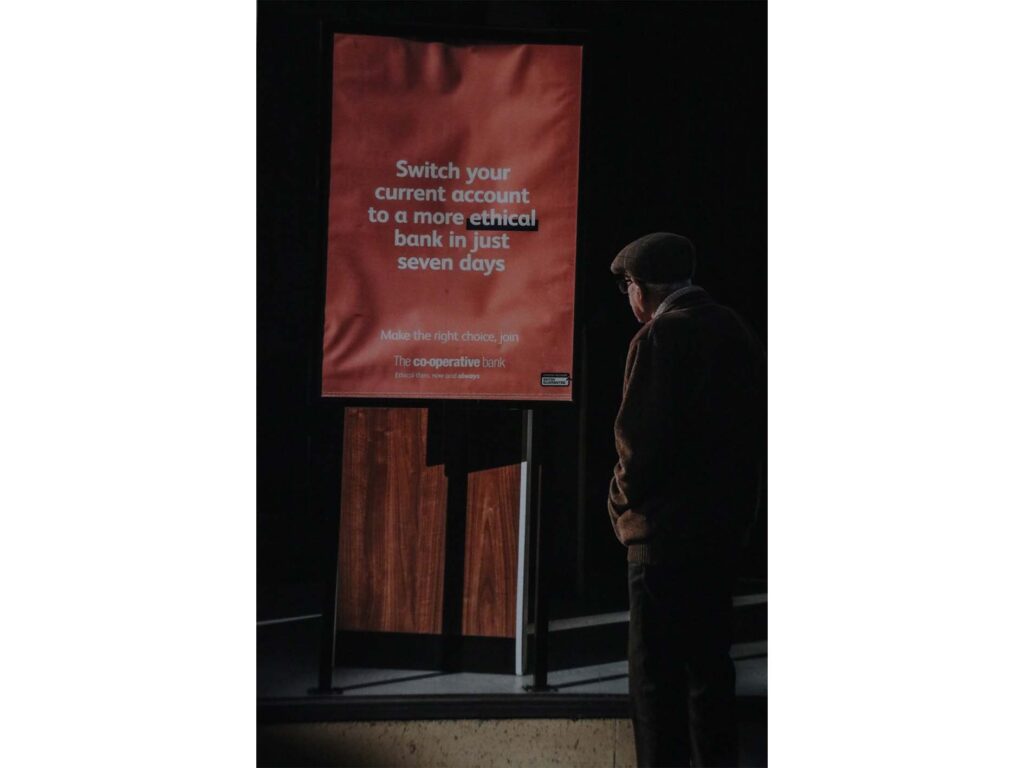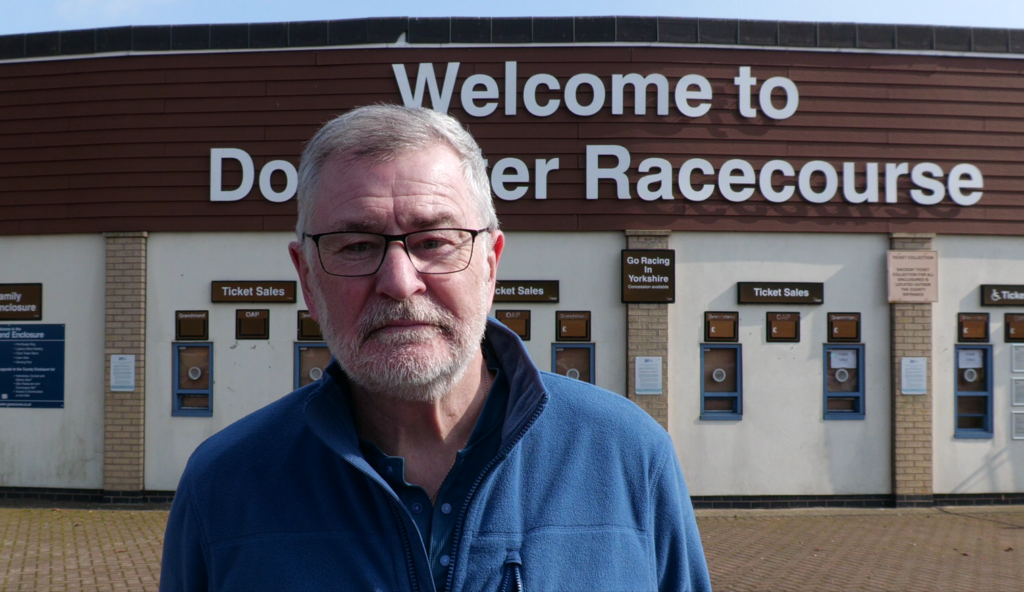
Mothers campaign for stricter measures: “People are being stabbed in schools and no one is seeing it as a crisis”
With over 40,000 signatures so far, two mothers have launched a petition for airport style security in schools across the UK.
Eileen Roche and Rebecca Phillips have started the campaign in response to the fatal stabbing of Harvey Willgoose on February 3 at All Saints Catholic High School.
Aiming to reach 100,000 signatures and take the matter before parliament, the petition calls for mandatory bag checks and bag scanners and the installation of metal detectors to keep weapons from entering schools.
The campaign pushes for greater transparency and immediate action from schools, requiring schools to inform parents of violent or weapon-related incidents promptly, and stricter policies on students caught with weapons so that they do not return without the necessary intervention.
Ms Roche said: “My son was in detention that day and thank god they were in detention, and he didn’t see anything. But there’s kids who have seen that young lad get stabbed, you know, they’d be traumatized for the rest of their life.”
The petition has seen many comments from those who have signed.
Eve said: “Earlier preventions need to be put in place to make a change.”
Wendy, from Rotherham, said: “Scanners could save lives of so many children and teachers. Parents, families should not have to lose loved ones in a place setting that should be safe.”
Laura, from West Yorkshire, said: “Our children need protecting and the fact that metal detectors haven’t been introduced to schools yet is mind blowing!”
Knife arches, or metal detectors, aren’t widely used in schools and small sample sizes mean that there is little evidence to indicate how effective they are at preventing knife crime.
However, Boyce Logue, Director of RISK Metal Detectors said: “Schools have doubled the amount of imports from us in the last year. Schools are now tied, I think they’re probably going to surpass the police pretty quickly in terms of who our largest customer is.”
Mr Logue indicated that knife arches can successfully prevent knife possession in nightclubs by 60-80%.
They work through different levels of sensitivity which sets off an alarm when metal is detected.
He added: “What a lot of schools do is they go for a portable knife arch which you can build and unbuild in five minutes, and they will put it up at random times.”
Walk-through metal detectors can be expensive, generally ranging from £2000 for a portable option and higher end detectors up to £8000.
Ms Roche raised that: “The only resistance is funding, but it’s also the school's choice if they want to put it [a metal detector] up or not. So it’s left on the schools shoulders to decide, whereas I think it needs to be a mandatory thing.”
Visit the Urgent Action to Combat Knife Crime in UK Schools petition at: https://www.change.org/p/stop-knife-crime-in-our-schools-security-is-needed?source_location=search

‘Lick of Paint Fest’: Sheffield’s first street art festival aims to celebrate local creatives
Two Sheffield artists have co-founded a street art festival which is launching this year and will include opportunities for local artists to work on murals in the city.
Co-founders of the Lick of Paint Fest, Megan Russel, 31, also known as Peachzz and Alastair Flindall, 33, are determined to “bring arts back to the forefront of Sheffield.”
Both artists are keen to share their expertise with local artists who want to break into the industry.
“I don’t think I’d be where I am without the people who shared information with me," said Megan. "Sharing is important to me, if it was all kept a secret, there would be no development in the art scene and everything would come to a standstill.”
Her mural Reverie, which overlooks Pound’s Park in Sheffield city centre, won runner up in the Street Art Cities ‘Best Mural in the World’ competition for 2024.

“The experience was overwhelmingly positive,” she said. “It was so exciting. Everyone’s buzzing now, it feels like the perfect time for the festival.”
The festival dates have not been confirmed yet, but will span over the course of a weekend. There will be a range of activities, including:
- Workshops, where people have the chance to get involved creating a mural
- Drawing sessions
- Film screenings showcasing Sheffield’s rich street art history
- Cycling and walking tours
- Pop-up events
The events will take place in and around the city-centre including: Fitzalan Square, Castlegate, Wicker, Five Weirs Walk and Kelham Island.
Community is at the heart of this project, and Megan and Alastair want to ensure that local artists are equipped with key knowledge and resources that will help them produce high quality art.
There will be applications sent out before the festival which artists can apply to, giving them the opportunity to work on permanent pieces that will add to the legacy of Sheffield’s art scene.
Megan and Alastair want the festival to be accessible for as many people as possible. All of the events will be free, but will be ticketed to ensure there is enough space.
The workshops will have accessible options for people in wheelchairs who may not be able to go high up.
“Their design could be painted by someone else, we can find walls that are more accessible, and they will be given more time to paint than those who are more able-bodied," said Alastair.
“We want the festival to be a stepping stone, rather than a barrier,” says Megan.
There will be partnerships with different community projects, like the Children’s Hospital, Art+ programme, The Becton Centre for Children and Young People and ArtWorks South Yorkshire.
ArtWorks South Yorkshire supports adults with learning difficulties and autism to thrive as artists and collaborators. They have creative studios in Sheffield, Barnsley, and Rotherham and produce murals, exhibitions, films and zines.
"We're thrilled to be working with Lick of Paint, a first-class festival that actively champions our artists who are autistic, have a learning disability, or both," said Kayleigh Cruickshank, the founder of ArtWorks. "Their commitment to inclusivity and breaking down barriers in the arts is truly inspiring."
Some of the workshops will focus on the use of technology, like augmented reality and projections, which will create conversations about how artists can make their practices more sustainable.
At the festival, Megan and Alastair will also share their advice on how to apply for a community project, how to upscale your artwork and share key business skills.
Alastair, who is an ex-teacher, said that he learns so much from teaching people.
“By sharing and bringing each other up together, there's more work for everyone because the more people see the art, the more they’re going to want to have it," he said.
Both Megan and Alastair have been building up partnerships for the last year and a half and have gained support from the public, Sheffield Hallam University and Sheffield City Council.
Alastair said that places like Bristol and Birmingham have huge spaces where people can paint legally.
“There’s so many wall spaces in Sheffield, it’s a no-brainer to have a festival here.”

Peak District visitors “shocked” as annual parking price rises by 95%
Visitors to the Peak District have criticised a sudden hike in parking prices, which has seen the cost of annual passes double for the first time in over a decade.
However, the Peak District National Park Authority has said the rise still represents value for money, with parking permits in the popular tourist destination among the cheapest for any national park in the UK.
The National Park Authority, which operates 31 pay & display car parks across the area, increased the cost of all hourly tariffs on 24 March, rising the price of an all day permit by almost 40% from £4.75 to £6.60.
Meanwhile, annual parking permits have soared by 95% from £40 to £78, prompting several angry customers to leave one-star reviews on the National Park Website.
One disgruntled reviewer said: “Putting the price up this much is really stupid. It just increases the number of people walking onto the footpaths from various grass verges and adds to the congestion in small village centres or laybys near the car parks.”
Matt Dearden, a commercial pilot who regularly visits the park to climb, said he decided not to renew his annual pass after the rise as “it just doesn’t seem very good value anymore.”
He said: “Whilst the price increase is frustrating and I cannot accept it, I do wish they would increase the amount of parking available for that extra cost. That would feel like you're getting something for your money.”

Concerns have also been raised that the increase will encourage visitors to park on road verges to avoid paying fees, which has become a growing problem in the National Park in recent years.
The issue made national headlines in January, when a jam of almost 200 cars parked at Rushup Edge blocked gritters from accessing the road, and hampered emergency services in rescuing an injured walker.
Zachary Louth, a 27-year-old climber from Sharrow Vale, said increasing parking fees would likely make the problem worse.
He said: “Personally I can see the value in the permit because I’m always out in the peaks and really appreciate when things are being looked after. So if I know that I’m contributing to that then that makes me feel good.
“But often you go to Burbage and the car park will be empty, but there will be cars all up the verges. So I hope they will make the car parks bigger and more accessible, and improve the services there.”
A spokesperson for the National Park Authority, which has faced a shortfall in government funding of around 50% over the last ten years, said the new fees reflect rising costs in maintaining its car parks and other facilities.
They said: “Our annual permit has remained at a very low cost of £40 since 2013 and the latest change reflects broader increases to day visit fees.
“The new annual permit still allows a regular user to pay just £1.50 per week; less than the cost of an hour’s visit at any of our Pay & Display locations, which we believe is excellent value for money for frequent visitors or residents.”
The spokesperson said funds from car parking contribute to maintenance across the National Park, including looking after public toilets and improving all-user trails which are free to visitors.
They added: "It is always the driver’s responsibility to park legally and not disrupt use of neighbouring land or restrict emergency access along roads in the Peak District.
"We are continuing to work with a range of local partners, the police and the highways authorities to understand the needs and potential solutions to parking capacity, but this must be balanced with the very same landscapes and views that people have come to enjoy – across all 555 square miles of the Peak District National Park.”

Sheffield Photographic Society’s annual exhibit invites public to get involved
Unique pictures including a leaping hare, striking shots of the Arts Tower and queuing cleaning ladies all feature in an exhibition currently being held inside Sheffield Cathedral.
Organised by one of the oldest groups of its kind, the Sheffield Photographic Society (SPS), the annual event showcases work produced from across the city.
This year marks the 145th anniversary of the society's first exhibition, which took place in Cutlers' Hall in 1880, and it will run until Sunday 6 April.

Mike Smith, winner of the Fred Hague trophy for the 'Sheffield (its Life and Environs)' category, spoke about his entry that featured a merry-go-round in a rainswept Barker's Pool at night.
"This was part of Sheffield Christmas market...we went on a Sunday afternoon and it was really rainy. We thought 'we might as well go home' but then, I saw all the reflections and I thought, well, there's gonna be some nice pictures here, so I went and took that with its reflections, and it's worked out quite nicely."
The photos on display cover a range of themes, from nature to street photography with subtle takes on social commentary.
For the first time, submissions were open to members of the public to compete in a separate category for non-members this year.
Jenny Owen, a society member, suggested that the move was an attempt to be “more outward-looking by inviting other people to get involved, to take some pictures, to send them in and see how they get on”.

She also expressed an interest in possible collaborations with other local photography societies, such as groups within the city’s two universities.
When asked whether people with disabilities and/or mental health issues would be able to participate, Ms Owen said: “People can come along as visitors, and we do try as much as we can, absolutely. The only requirement is to be interested.”
Keith Brown, a long-standing member of SPS and a fellow member of the Royal Photographic Society, offered the opening speech and spoke warmly about the support he received from photographers in Sheffield after his wife’s cancer diagnosis.
He also paid tribute to Ken Doney, a former President of SPS who facilitated the transition from film to digital, and “brought with him all his city contacts, especially here at the Cathedral” which helped secure the venue for the annual exhibit.

A number of members spoke about how technology has changed, and the extent to which they are grappling with the use of AI in developing their photos.
On this point, Ms Owen said: "There is quite a lively debate about how far should we go with that. Is that great because you can be even more imaginative, or is that murky ground because, you know, is it really your image or is it something else?
"Where does your work end and something else begin?"

Sheffield’s Chinese community celebrates resilience: “we’re still here and we do belong”
Generations of Sheffield’s East and Southeast Asian community stressed the healthcare challenges their older population face during a networking event last week.
The event was organised by Changing Seasons, a project creating a safe space for members of Sheffield's ESEA community experiencing memory loss and isolation.
Stephanie Chung, Founder of the Changing Seasons Project, said: “The Chinese community was very badly affected by Covid-19, especially in terms of stigmatisation and isolation.
“This event is to celebrate that we are still here and we do belong, as well to highlight our heritage and share it with the next generation.”
Approximately 15,000 people with dementia in the UK come from black, Asian and minority ethnic (BAME) communities.
Ms Chung said long working hours, language and cultural barriers, and fear of stigmatisation mean that many people from the ESAE community with dementia struggle to access mainstream health provision.
The event was hosted on 26 March in collaboration with the Chinese Community Centre who are celebrating their 30th anniversary this year.

Sarah NG, Chair of the Chinese community centre, made a speech highlighting the work they do to support the health and wellbeing of Sheffield’s Chinese community such as Tai Chi classes and health support services.
She also discussed the significant challenges the centre is facing, including limited resources and only one part time member of staff.
During the event, Ms Chung announced the launch of an exhibition at the Weston Park Museum that will run from September 2025 until 2028 to commemorate the Chinese community centre’s anniversary.
Ms Chung said: “The centre has been here for over 70 years and that’s not something that is often celebrated or recognised.
“That’s why I’m working on an exhibition to bring our history to life.”
As well as the Chinese community, the event was attended by people from diverse backgrounds across the city.
Sajid Rasul, an attendee said: “This event is brilliant because it's bringing lots of communities together and celebrating diversity, which is fantastic for our city.”

Ukrainian refugee-led boxing academy provides joy for Sheffield’s youth
A Ukrainian forced to flee to the UK has launched a boxing academy to provide joy and self-confidence for young people in his new home city.
Oleksandr Pohodin, 35, had his own sports club in Ukraine, and was a former amateur boxer with nearly 150 bouts to his name.
However, the life-threatening upheaval of Russia’s invasion on February 24 2022 prompted him and his wife to seek a safer life for their family in the UK.
Mr Pohodin teaches a variety of backgrounds and age groups six days a week.
“If people spend time at this gym, they are not spending time in the street or on their cellphone and I understand when children spend time here, it helps them develop new skills and feel more self-confidence,” he told the PA news agency.
“For me, I feel very successful when I know a child is happy to be here.”
Mr Pohodin left Chernivtsi in south-western Ukraine in 2022 for Sheffield, via the Homes For Ukraine scheme, alongside his wife Zhanna, 40, and their children – Nika, 15, Polina, eight, and Matvii, six.
In May 2024, he founded Pohodin Boxing Academy, operating out of Syd’s Gym in Sheffield, together with Syd Khaan and Benny Banaris.
He also received guidance and support from Brendan Warburton, the founder of Sheffield City Boxing Club, who was awarded an MBE in 2022 for his community work.
Mr Pohodin told PA that he made contact with Mr Warburton online before arriving in England, describing him as "a very great coach and a very good person."
He said: “Before I came, I started a conversation with him and said, I will be in Sheffield, and if he wants I will start volunteering in his gym and he agreed."
“When I opened this academy, he helped me a lot, he explained to me how all this works – 100%, I think he’s my mentor.”
He added he feels particularly happy to live in Sheffield as he considers it to be the “centre of boxing” in the UK.
Mr Pohodin also received an employment adviser and English language training through World Jewish Relief, which has helped more than 13,000 Ukrainians rebuild their lives in the UK since 2022.
Quinn, 14, is one of Mr Pohodin’s students.
Despite trying other sports, he said he has connected with boxing the most, and cited Ukrainian boxer Vasiliy Lomachenko as one of his sporting heroes.
He said: “It’s been really good training with Oleksandr. I’ve tried other sports like football and basketball but when I’ve put the gloves on, they’ve never come off.”
Many Ukrainians have taken the boxing world by storm, including Vitali and Wladimir Klitschko, and Oleksandr Usyk, who has held the unified world heavyweight championship since 2021.
Mr Pohodin said seeing Ukrainian boxers thrive makes him “very proud”.
“I remember when Usyk beat for the first time Tyson Fury, I am very proud he’s from Ukraine,” he said.
“I’m very happy Ukrainian boxing is successful.”
Katryna Stelmakh, 30, and Natali Pryima, 28, both came to the UK from Ukraine and attend sessions with Mr Pohodin.
Ms Stelmakh arrived in the UK in February 2022 from Kyiv, while Ms Pryima came to England in June 2022 from Poltava in central Ukraine.
Ms Stelmakh, who was a doctor in her home country, said adjusting to life here was difficult due to the language barrier and finding a job, but said British people she has met have all been “very welcoming”.
Initially joining boxing classes for her wellbeing, she said she was glad she then met fellow Ukrainians.
“I found our coach, Oleksandr, and then I came to the classes and met Natali here,” she told PA.
Ms Pryima added: “First of all, for me, it’s a full body workout, it’s a really intensive workout and it’s a stress reliever."
“It’s not just about punching the bag, it’s therapy as well.”

Schoolboy fundraises to represent Team GB in Australian Roller Derby World Cup
A Sheffield schoolboy is fundraising £5,000 in order to play in an international competition, in a sport described as "rugby on skates".
Tom Halsall, 17, from Upperthorpe was selected to compete for Team GB in the Junior Roller Derby World Cup, which is being held over 10,000 miles away in Brisbane at the start of July.
Tom said: “This is a truly-once-in-a-lifetime experience for me. Playing at the World cup is a dream for me, representing not only team GB but also Sheffield on the world stage.
"I am also really looking forward to playing against some of the other top tier skaters from around the world."
Roller Derby is a fast-paced, full-contact sport on quad skates, which has two primary positions: the jammer and the blockers.
A match consists of multiple rounds, called jams, in which the jammer scores points by lapping members of the opposing team, whilst the blockers stop the opposing jammer.
Tom has been playing alongside his siblings since he was eight-years-old.
His mum, Fay Kenworthy, who played in the adult league, introduced Tom and his siblings to the sport.

Credit: Fay Kenworthy
He now plays for both Team GB’s Junior Team, under the name 'Atomic Bomb', alongside the Sheffield Steel Roller Derby (SSRD) and the Sheffield Steel Junior Rollers (SSJR).
Tom said: “I would describe it as similar to rugby on skates, but someone is the ball.”
Roller Derby is unique in its inclusivity as athletes of all genders, body types and skill levels compete together.
Tom said: “Despite its tough image it is an incredibly supportive community and has been a huge part of my life for the last nine years, from playing with matching face paint to filling the car with team mates travelling around the country.”
Roller Derby Leagues in the UK started forming in 2006 but is still a developing sport, with no government funding, meaning that Tom and his teammates have to self-source the funding for training, travel and accommodation.
Tom said: “The main support they [Team GB] provide us is the training and the focus is just to make sure we are in our best shape when we are going into the World Cup.
“Even just a tiny donation can help massively and take me so far.”
Tom has set up a GoFundMe page to fundraise his goal of £1,500 to help with these costs and is hoping that a local business may be interested in sponsoring him.
He is also currently in his last year of college, studying maths, engineering and physics, and will be sitting his A-level exams less than a month before competing in Brisbane.
Tom said: “It is definitely a bit of a balancing act, just making sure that I stay on top of my college work whilst also keeping up with the rest of the team.”
Tom's GoFundMe can be found here: Get Tom Halsall to the Roller Derby World Cup in Australia

Rotherham United axe manager Steve Evans
League One side Rotherham United have sacked their manager following a string of disappointing results.
The club made the decision after Steve Evans led The Millers to a heavy 4-0 defeat to relegation rivals Crawley Town on Saturday.
This has left the South-Yorkshire club in 16th place after failing to win any of their last four outings.
First team staff Paul Raynor, Gary Mills and Ian Pledger have also been relieved of their duties with immediate effect.
Yesterday, a club statement said: “Everyone at Rotherham United would like to thank Steve, Paul and their coaching team for all their efforts and wish them well in their future endeavours.”
Evans was appointed as head coach last April on a three year deal after a compensation package was agreed with Stevenage who he was managing at the time.
After relegation from The Championship last season, The Millers have struggled once again with just 12 wins from their 38 games in League One this campaign.
Nine points above the relegation zone with just eight games left to play, there are fears that Rotherham could still face the drop and achieve consecutive relegations.
This has been Evans’ second stint at the club after the Scotsman took charge between 2012 and 2015, in which he won promotion to The Championship in 2014.
The club statement said: “The club can also confirm that Matt Hamshaw, together with Andy Warrington and other staff to be confirmed will take charge of first team matters with immediate effect until the end of the season.”
Hamshaw will speak to the media this afternoon to discuss his temporary appointment and the next outing against Northampton Town.
Here is the link to the interview:

On Sheffield Wire today
Good morning and welcome to today’s coverage of news from across South Yorkshire. It’s Monday 31 March 2025.
Our top stories today include:
- Steve Evans was sacked as Rotherham United manager on Sunday: Reporter Joel Cheshire spoke to fans to get their take on Evans axing after a run of seven defeats.

- Parking fees have risen without warning by 95% in the Peak District National Park (now £78 for an annual pass): Reporter Billy Clarke interviewed annual pass holders to see their opinion on this and he investigates to see if this will lead to illegal parking on road verges.

- Sheffield girl to trek 100k for breast cancer charity : Hannah Catterall to trek 100k in the Isle of Skye to fundraise for Coppafeel. Cassidy Chan reports on this.

Nigel Farage heads to Doncaster ahead of key local election
The Reform Party leader will be speaking in Doncaster tomorrow as his party is expected to take over the Labour-run council in May local elections.
Guy Aston, who is running as a candidate for the Wheatley Hills and Intake ward, said: “It’s a big day in the politics of Doncaster.”
The event comes as a poll undertaken by Electoral Calculus has predicted a huge swing to Reform in the local elections on 1 May.
Earlier this year, Reform announced 55 new councillors who will be standing for wards in Doncaster and, if the polls are correct, they are set to take 32 seats where they currently have zero.
Gaining control of the council, which has been governed by a Labour majority since 2010, would be a monumental victory for Reform who have had Doncaster in their sights since the last general election.
Mr Aston said: “The overall strategy is to get a good number of councillors across the country, establishing a base for Reform and focusing on the next general election in 2029.”
Farage is also set to announce the party’s candidate for the city’s mayoral election at the event tomorrow at Doncaster Racecourse.
The current Mayor, Labour’s Ros Jones, kicked off her campaign for what would be her fourth term this weekend.

Doncaster resident, Alan, 76, said he would be attending the Reform event on Tuesday.
A firm supporter of Farage, he said: “I think he should be Prime Minister. He says what he thinks and everything he says is true.”
However, not everyone in Doncaster was happy about Farage’s visit this week.
Darcy, 18, said: “I think a lot of the young people around here have strong opinions about him. I don’t like him. I don’t like anything he stands for. I think he’s ignorant to the way the world is now.”
Reform’s key campaign points include building affordable homes, slashing NHS waiting times and empowering the community.
Mr Aston said: “Our plan in Doncaster is to govern Doncaster for the town and for its people.”
The event is set to start at midday tomorrow.

Rotherham set for a Wilde rock’n’roll show this Thursday
An icon of the rock’n’roll era is back in South Yorkshire this week, as Marty Wilde takes the stage in Rotherham on Thursday.
Wilde, who’s been performing in the UK since the mid 1950’s, is making his one stop in South Yorkshire at Rotherham’s Civic Theatre as part of his current tour.
He said: “Touring is almost like a natural thing for me, I don’t work as much anymore, but it’s like a lifestyle.”
Wilde has regularly toured since the start of his career, with his first appearance in South Yorkshire being at the Empire Theatre in Sheffield in 1957.
The rock and roller’s audience have grown up with him over the years, and the Civic’s intimate set up provides the perfect place for them to interact.
He said: “In the old days you had thousands of screaming teenagers, and I don’t get them anymore.
“I talk to the audience and we laugh together really, the audience I think are much more appreciative these days, back in the old days they could barely hear you.”
Wilde’s hits include A Teenager in Love, Rubber Ball and Sea of Love, but he is also known for his song writing , having primarily written songs for other artists.
These include the song ‘Kids in America’, written for his daughter, singer Kim Wilde, who herself performed in Sheffield this weekend.
Wilde also spent plenty of time playing clubs in the North, at a time when smaller venues provided his career a lifeline.
He said: “I love working in the North, in the old days you found that Northern audiences were a lot warmer in many ways than others.
“The North also saved me, as there were dozens of clubs where I would play when there was none down South.”
Wilde’s current tour comes off the back of his first number one record, Two Eyes Streaming, which reached number one in the UK Heritage Charts last year.
This, along with the charting of his previous album Running Together, means Wilde has now made the charts in eight successive decades.
Marty Wilde and The Wildcats play at Rotherham Civic Theatre this Thursday, doors open 7:30pm.
Tickets can be purchased here.

“Nothing green or clean”: Yorkshire based activist group protest on Sheffield University campus
Protesters from the Axe Drax campaign set up on the University of Sheffield campus over March, following their disruption of the Labour party conference early this month.
The Drax group states the plant is “now the site of innovation for bioenergy with carbon capture and storage”, despite a flurry of accusations that the site is greenwashing and driving environmental racism.
The Drax Power Station burns millions of tonnes of wood pellets imported from protected forests in the US, British Columbia and Brazil every year. The Axe Drax group has called for an end to the government subsidisation of the plant, claiming the plant disproportionately affects minority communities, and students are showing their support.
Adam, a Geography student who gave only his first name, said: "The Uni needs to stop pretending that developing carbon capture technology is anything but a fantasy.
"Students don’t want to study somewhere which supports greenwashed carbon capture lies.”
Drax claims to be carbon neutral because they use carbon capture technology, but emit as much if not more CO2 than average gas or coal power plants.
Rachel Reeves announced new subsidies for the Drax plant from 2027 to 2031 at the Yorkshire Labour Party Conference in March, estimating a £2bn impact on bill payers.
The Axe Drax group disrupted the conference and were forcibly removed.
Rosie, an Axe Drax protester who only shared her first name, called the decision to extend subsidies for Drax “an absolute disaster” for bill payers, the environment and local communities.
She said: "Drax has already pocketed billions in government subsidies on the basis of it being a green solution to our energy problems, we were sold a lie."
The wood pellets that the plant burns for energy are detailed as ‘carbon neutral’ by the UK government, and are therefore tax-payer funded.
Drax Power Station is the world's number one tree burner and the UK's largest emitter of CO2, accounting for 5% of UK energy.
Sheffield University's Young Greens society pledged their full support of the Axe Drax campaign, labelling the pollution as "sickening".
we believe that the Government is only worsening the ongoing climate crisis by continuing to support projects like this
"The government has given over £6 billion worth of subsidies to Drax since 2012 and we firmly believe that this is a waste."
"Drax is the UK’s single largest carbon emitter. Rather than giving approximately £460m a year in subsidies, we must spend that money on renewable energy - on solar, wind, wave and hydro - to secure a safer and greener future for us all"
Axe Drax campaign leaders called Drax’s green credentials “based on dodgy carbon accounting”, stating that the future subsidies would lead to “business-as-usual tree burning, with no clear end date in sight".
“Drax’s operation model exploits and pollutes poor, black communities for profit and the UK Government is funding it via our energy bills.”
The group has accused Drax of subsidising environmental racism, both in the UK and in the US, with its Mississippi pellet manufacturer creating health issues for the largely black communities nearby.
Drax has been fined $2.5m for breaking emission limits over 11,000 times.
Maisie, another Geography student choosing to only give a first name, said: “Us, the student body, oppose the university’s support of Drax. The plant’s importing of wood from the US creates issues for the largely black communities there and for locals here in the UK.
“They say they’re being choked by fumes. We can’t allow this to continue. We must end university support for Drax now, action must be taken.”
Protests against Drax and the University’s support are set to continue, with Axe Drax at the forefront and the student body seemingly behind them in their efforts.
Drax Global has been approached for comment.
